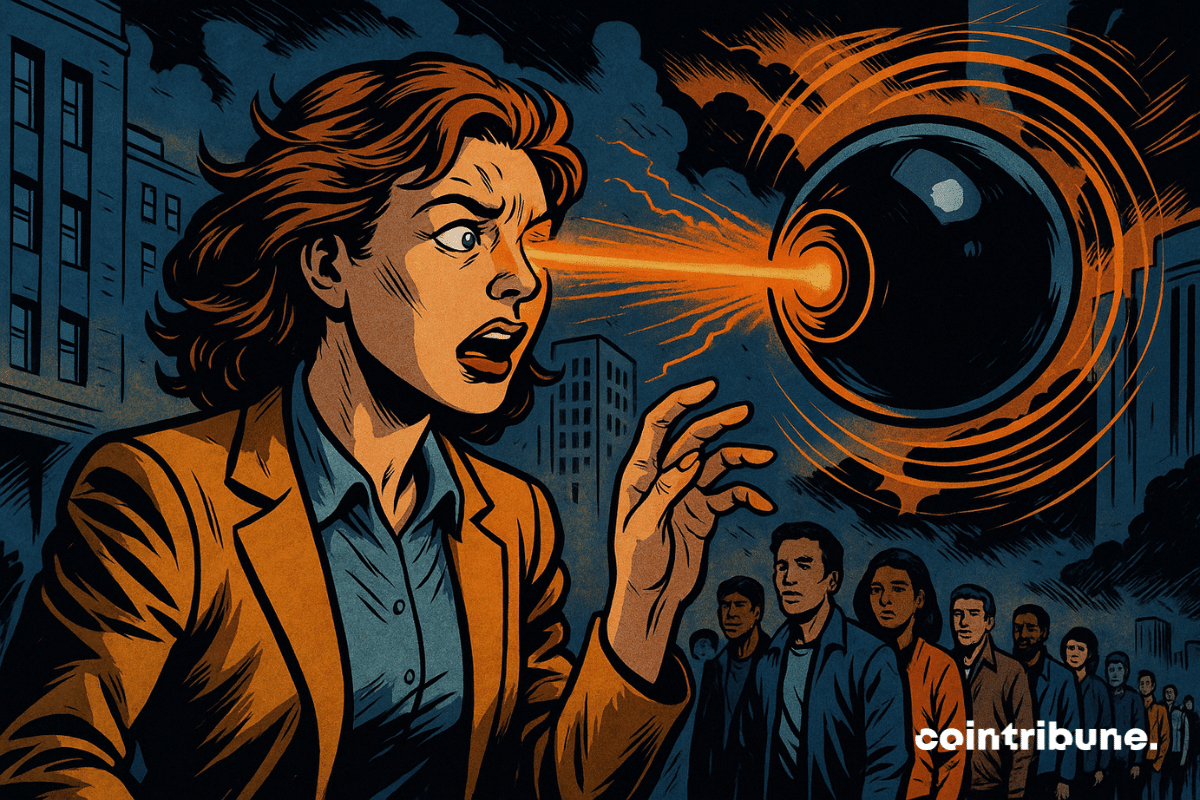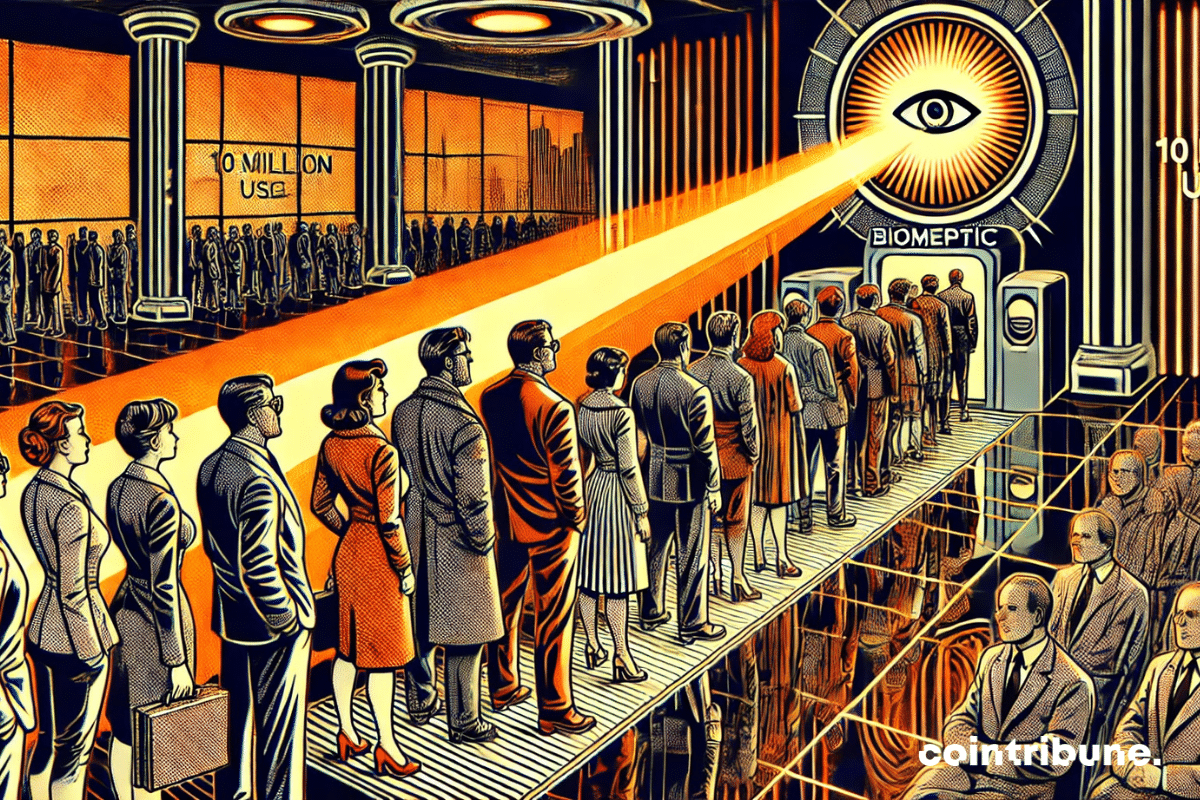Pioneering in the market of proof of humanity, the company Tools For Humanity aims to increasingly expand the database of its Worldcoin project. It is only under this condition that it will be possible to effectively distinguish between humans and machines in the digital world. By prioritizing users verified by World ID in transactions on Worldchain, Sam Altman's company wants to encourage even more people to use the famous Orb and iris scan.
World Coin
Artificial intelligence is progressing at a rapid pace, making the distinction between humans and machines increasingly difficult. In response to this evolution, Worldcoin, now rebranded as World, aims to establish a universal proof of humanity through a biometric identification system based on iris recognition. The company has just announced that it has surpassed the milestone of 10 million verified users, a benchmark that signifies its massive adoption and fuels growing controversy. Indeed, the project relies on a network of orbs tasked with scanning the users' ocular data to assign them an unforgeable digital identity. According to its creators, this technology would secure digital interactions and ensure that only genuine humans access online services. Nevertheless, several governments and data protection authorities are concerned about the potential pitfalls of this model. Between technological promise and regulatory resistance, Worldcoin is part of a debate on digital identity and personal data governance. Its success or failure could shape the future of online authentication in a world where AI challenges the foundations of digital trust.
The crypto universe is ruthless, and in recent weeks, Worldcoin (WLD) has painfully demonstrated this. Despite being backed by the CEO of OpenAI, Sam Altman, the project saw its value plummet, leaving 84% of its holders at a loss. Investors, who might have believed in a rise similar to other…
World ID integrates Solana and enhances the security of crypto applications through robust identity verification.
Worldcoin, the innovative crypto project that offers WLD in exchange for an iris scan, is a huge success. Details in this article.
Sora, OpenAI's text-to-video AI, propels AI cryptocurrencies that see their numbers rise following the announcement.
Boosted by AI and its million users, Worldcoin saw its crypto token WLD soar by over 140%!
Community Gaming integrates Worldcoin's World ID. It will now use the power of AI to secure esports tournaments.
"The Worldcoin ORB promises a crypto revolution through the alliance of AI and biometrics, redefining global access to the economy."
The crypto Worldcoin (WLD) project is no longer really needs an introduction, as its idea is quite unique. Led by Sam Altman, the founder of ChatPGT, the Worldcoin crypto initiative was built on a simple principle: to offer WLD cryptos to each individual in exchange for an iris scan. A transaction that is currently controversial for obvious reasons, but since its official launch in July 2023, it has continued to attract members. Thus, millions of users from all over the world have joined this crypto program and had their iris scanned. After nearly 6 months of operation, what is the journey of WLD? This is what we will see in the following lines.
Sam Altman is no longer the CEO of OpenAI, the firm behind the ChatGPT conversational tool. An opportunity of a lifetime for Charles Hoskinson, the CEO of the crypto company Cardano, who has made an enticing proposal to Sam Altman. One that involves creating a Large Language Model (LLM) that operates in a decentralized manner.










